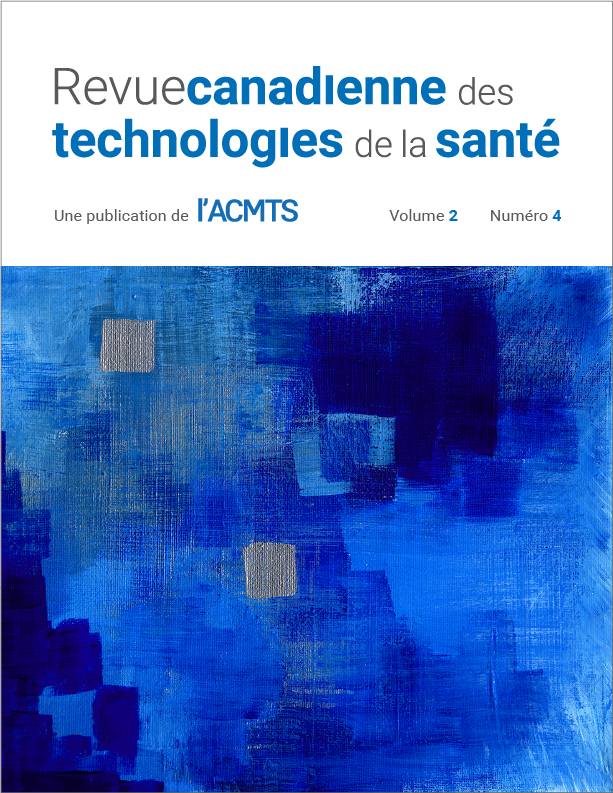Examens d’une technologie de la santé
La kétamine dans la prise en charge de la dépression résistante au traitement ou du trouble de stress posttraumatique chez l’adulte
Messages clés
- Deux essais cliniques randomisés (ECR) en viennent à des conclusions contradictoires sur l’efficacité des perfusions répétées de kétamine intraveineuse pour améliorer l’état du patient atteint de trouble de stress posttraumatique. Un essai portant sur un petit échantillon de civils conclut que ce traitement améliore significativement les symptômes comparativement au midazolam, tandis que l’autre, qui porte sur un échantillon plus gros composé de militaires, n’arrive pas à démontrer une efficacité significative comparativement au placébo. Les effets antidépresseurs de la kétamine sont rapides, mais ne se maintiennent pas après quelques semaines de suivi.
- Un ECR comparant la kétamine intraveineuse à l’eskétamine intraveineuse constate que les deux substances ont des effets antidépresseurs aigus comparables 24 heures après la perfusion chez les patients atteints de dépression résistante au traitement.
- Deux ECR produisent des données probantes contradictoires sur l’efficacité d’une perfusion intraveineuse de kétamine utilisée comme anesthésique avant une électroconvulsothérapie en contexte de dépression résistante au traitement. Un essai portant sur une population militaire montre que les patients subissant une électroconvulsothérapie après une anesthésie par kétamine présentent des améliorations semblables de la dépression que ceux subissant une électroconvulsothérapie après une anesthésie par méthohexital. En revanche, dans l’autre essai, qui compare l’anesthésie par la kétamine à l’anesthésie par propofol chez une population civile, la kétamine est associée à une amélioration plus rapide des symptômes dépressifs et à un moins grand nombre de séances d’électroconvulsothérapie nécessaires pour obtenir la rémission.
- D’après un ECR de petite envergure lors duquel les patients ont subi, en alternance, une perfusion à une dose sous-anesthésique de kétamine ou de midazolam et une séance d’électroconvulsothérapie, il n’y a pas de différence significative entre les groupes quant à l’effet antidépresseur.
- L’efficacité de la kétamine orale est démontrée dans un ECR, selon lequel l’administration répétée de kétamine par voie orale réduit significativement les symptômes dépressifs comparativement à un placébo.
- Une étude rétrospective de dossiers médicaux de petite envergure montre que l’administration répétée de kétamine intramusculaire n’est pas associée à des différences significatives dans l’amélioration des symptômes dépressifs et anxieux comparativement à la stimulation magnétique transcrânienne répétée.
- Des résultats semblent appuyer l’innocuité et la tolérabilité de la kétamine dans la prise en charge du trouble de stress posttraumatique ou de la dépression résistante au traitement. Les effets secondaires les plus courants associés à la kétamine sont les symptômes dissociatifs et les changements cardiovasculaires, comme une élévation de la tension artérielle et de la fréquence cardiaque, mais ces effets sont passagers.
- Des lignes directrices danoises déconseillent le recours à la kétamine intraveineuse en contexte de dépression résistante au traitement en raison de l’insuffisance et de la faible qualité des données probantes et du manque de données sur l’efficacité à long terme et le risque d’usage abusif. De même, des lignes directrices canadiennes recommandent d’envisager la kétamine intraveineuse en troisième intention chez l’adulte atteint de dépression résistante au traitement, étant donné son efficacité de courte durée, ses effets secondaires, et l’absence de stratégies pour prévenir la rechute après les perfusions de kétamine.

